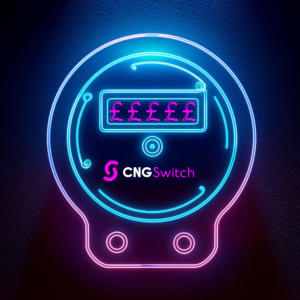In recent years, the deployment of smart meters across the United Kingdom has sparked both curiosity and controversy. These digital devices are revolutionizing the way we monitor and manage our energy consumption, promising benefits for both consumers and the environment. But what exactly are smart meters, and what do they mean for households across the UK? Let’s delve into the world of smart meters to uncover their pros and cons, functionality, and the options available to consumers.
What are Smart Meters?
Smart meters are advanced digital devices that replace traditional gas and electricity meters in homes and businesses. Unlike traditional meters, which require manual readings, smart meters automatically track energy usage in real time and communicate this data to energy suppliers remotely. This enables consumers to monitor their energy consumption more accurately and make informed decisions about their usage habits.
Pros of Smart Meters:
- Real-Time Monitoring: Smart meters provide real-time insights into energy usage, allowing consumers to identify patterns, set energy-saving goals, and make adjustments accordingly.
- Accurate Billing: With smart meters, billing is based on actual usage rather than estimated readings, reducing the likelihood of billing errors and ensuring fairer charges.
- Energy Efficiency: By promoting awareness of energy consumption habits, smart meters encourage more efficient use of energy, leading to potential cost savings and reduced environmental impact.
- Remote Management: Energy suppliers can remotely monitor and manage smart meters, making it easier to identify and address issues such as power outages or meter malfunctions.
- Transition to Smart Grids: Smart meters play a crucial role in the development of smart grids, which enable more efficient distribution of energy, integration of renewable sources, and support for electric vehicles.
Cons of Smart Meters:
- Privacy Concerns: Some consumers are concerned about the privacy implications of smart meters, particularly regarding the collection and sharing of personal energy usage data.
- Initial Costs: The installation of smart meters involves upfront costs, which are ultimately passed on to consumers through energy bills. Some critics argue that the long-term benefits may not outweigh these initial expenses.
- Compatibility Issues: In some cases, smart meters may not be compatible with certain energy tariffs or renewable energy systems, limiting consumer choice and flexibility.
- Reliability: There have been reports of technical issues and connectivity problems with smart meters, leading to inaccurate readings or disruptions in service.
Do You Have to Have a Smart Meter?
While the UK government has set targets for the nationwide rollout of smart meters, consumers are not legally required to have one installed. However, energy suppliers are actively encouraging customers to make the switch by offering incentives and emphasizing the benefits of smart meter technology.
Opting Out:
If you prefer not to have a smart meter installed in your home, you have the right to opt out of the rollout program. You can contact your energy supplier to express your preference and request to remain on a traditional metering system. Keep in mind that opting out may mean missing out on the benefits of smart meter technology and could result in higher costs if you’re subject to estimated billing.
In conclusion, smart meters represent a significant advancement in energy management technology, offering benefits such as real-time monitoring, accurate billing, and enhanced energy efficiency. However, they also raise concerns regarding privacy, cost, and reliability. Ultimately, the decision to adopt smart meter technology is a personal one, and consumers have the option to opt-out if they so choose. As the rollout continues across the UK, consumers need to weigh the pros and cons and make informed decisions about their energy management needs.

